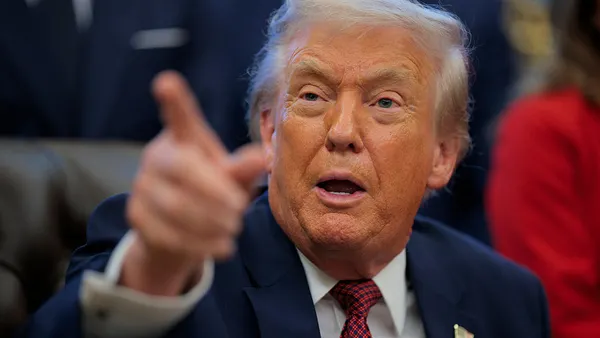Dive Brief:
-
Amazon is rolling out a new service offering installation of multi-unit delivery lockers called Hubs in condo buildings and apartment complexes to allow secure holding of packages delivered for building residents, according to Engadget.
-
Each individual locker is accessible via a passcode, residents can receive packages in their lockers from shopping sites and delivery services other than Amazon, and even from other individuals.
-
In other Amazon-related news, the company said during its second quarter earnings call last week that it plans to continue developing innovative grocery concepts Amazon Go and Amazon Fresh even after it completes the acquisition of Whole Foods, according to Business Insider.
Dive Insight:
Secure delivery lockers, or smart lockers if you prefer, are not a new idea in fulfillment and logistics. UPS, DHL and others have been investing in this concept for years, and Amazon has been, too. In most cases, these kinds of lockers are located in public places such as convenience stores or coffee shops, where customers can come in when they want and retrieve packages.
Those lockers are a definite improvement in last-mile package delivery, but Amazon is actually taking the delivery locker concept a little further by creating a branded locker structure that could be installed in all types of multi-unit residential or business buildings. It’s an idea that makes a huge amount of sense: Place the lockers closer to the customer in the form of a sleek-looking, electronically-secured “hub,” and put Amazon’s familiar branding on it so customers can remember who to thank for the convenience. (Interesting that in a video promoting The Hub, the Amazon name is not visible on the lockers, though the swooping arrow common to its logistics and fulfillment business is.)
The most interesting aspect of The Hub might be the fact that any delivery service can deliver packages to these lockers. Why is that so important? Because UPS, Fed Ex and DHL may be the ones transporting a package for the last mile, their familiar delivery trucks pulling up to the curb. But with The Hub, Amazon may effectively usurp the last few inches of the last mile from those firms. The FedEx truck may pull up to the curb, but the company providing secure access to that package is Amazon.
Even as Amazon has inched its way into logistics, package transport and last-mile delivery, it has remained a major partner of the biggest logistics companies. That may not change anytime soon, but Amazon continues to test those relationships.
Meanwhile, Amazon's assertion that it will continue working on Amazon Go and Amazon Fresh after the Whole Foods acquisition is not necessarily surprising, though re-assuring to anyone who feared Amazon might move quickly to eliminate cashiers from Whole Foods, and turn the chain's stores into test beds for new ideas. Whole Foods may need help, but Amazon will also need to be careful about doing too much too quickly and change the retailer too radically. Amazon wants to win the grocery market, and to do that it needs to strengthen Whole Foods, rather than radically disrupt the whole operation.














